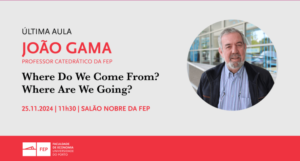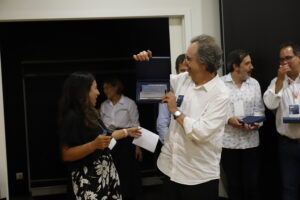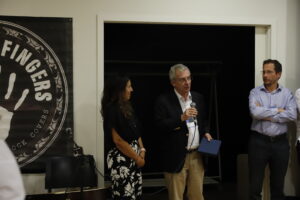Dear Colleague(s),
Below you will find the Last call for papers for EvoStar 2025.
Deadline: November 1, 2024
Feel free to distribute and thank you for your time. Apologies for the cross-posting.
Best regards,
João Correia
EvoStar Publicity Chair
———————————————————————-
Call for papers for the EvoStar 2025 conference
http://www.evostar.org/2025/
Submission Deadline: November 1, 2024
Conference: 23 to 25 April 2025.
Venue: Trieste, Italy
News:
** EvoAPPs Special Sessions
.30 years of Particle Swarm Optimization
.Analysis of Evolutionary Computation Methods: Theory, Empirics, and Real-World Applications
.Applications of Bioinspired Techniques on Social Networks
.Bioinspired Algorithms for Green Computing and Sustainable Complex Systems
.Computational Intelligence for Sustainability
.EvoLLMs: Integrating Evolutionary Computing with Large Language Models (LLMs)
.Evolutionary Computation and Machine Learning in Humanitarian Logistics and Disaster Forecasting
.Evolutionary Computation in Edge, Fog, and Cloud Computing
.Evolutionary Computation in Image Analysis, Signal Processing and Pattern Recognition
.Machine Learning and AI in Digital Healthcare and Personalized Medicine
.Resilient Bio-Inspired Algorithms
.Soft Computing Applied to Games
More information at:
https://www.evostar.org/2025/evoapps/
** 4th special joint track on Evolutionary Machine Learning
This joint track, evoapps + eurogp, on Evolutionary Machine Learning (EML) will provide a specialised forum for discussion and exchange of information for researchers interested in exploring approaches that combine nature and nurture with the long-term goal of evolving Artificial Intelligence (AI)
https://www.evostar.org/2025/eml/
Please distribute
(Apologies for cross-posting)
————————————————
EvoStar comprises four co-located conferences run each spring at different locations throughout Europe. These events arose out of workshops originally developed by EvoNet, the Network of Excellence in Evolutionary Computing, established by the Information Societies Technology Programme of the European Commission, and they represent a continuity of research collaboration stretching back over 20 years.
EvoStar is organised by SPECIES, the Society for the Promotion of Evolutionary Computation in Europe and its Surroundings. This non-profit academic society is committed to promoting evolutionary algorithmic thinking, with the inspiration of parallel algorithms derived from natural processes. It provides a forum for information and exchange.
The four conferences include:
– EuroGP 28th European Conference on Genetic Programming
http://www.evostar.org/2025/eurogp/
– EvoApplications 28th European Conference on the Applications of Evolutionary and bio-inspired Computation
http://www.evostar.org/2025/evoapps/
– EvoCOP 25th European Conference on Evolutionary Computation in Combinatorial Optimisation
http://www.evostar.org/2025/evocop/
– EvoMUSART 14th International Conference (and 18th European event) on Artificial Intelligence in Music, Sound, Art and Design.
http://www.evostar.org/2025/evomusart/
*** Important Dates, Venue and Publication ***
Submission Deadline: November 1, 2024
Conference: 23 to 25 April 2025.
Venue: Trieste, Italy
All accepted papers will be printed in the proceedings published by Springer Nature in the Lecture Notes in Computer Science (LNCS) series.
Please check the website for more information:
http://www.evostar.org/2025/
And follow us at:
X – https://x.com/EvostarConf
Instagram – https://www.instagram.com/evostarconference/
Follow SPECIES at:
https://www.linkedin.com/company/species-society/








